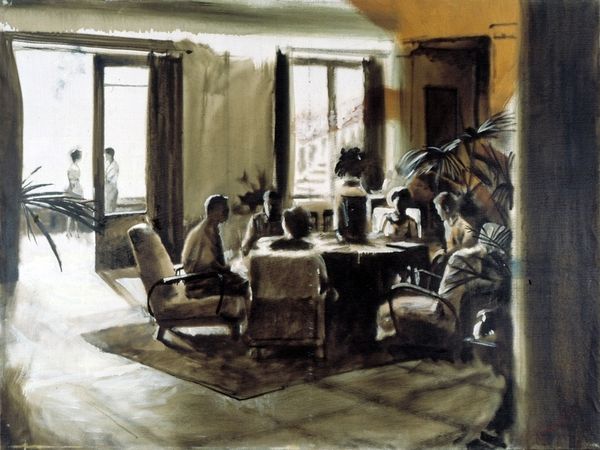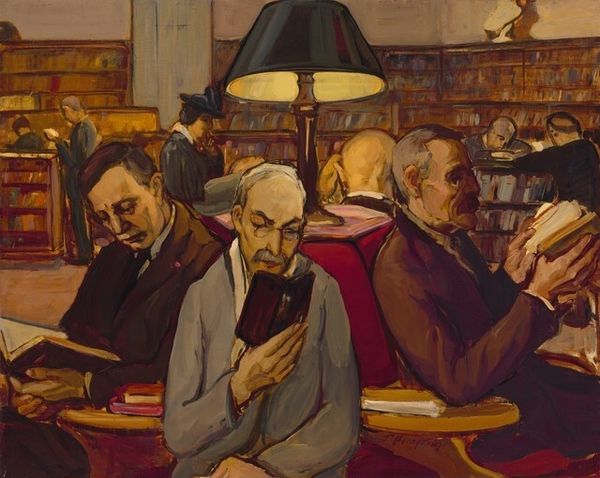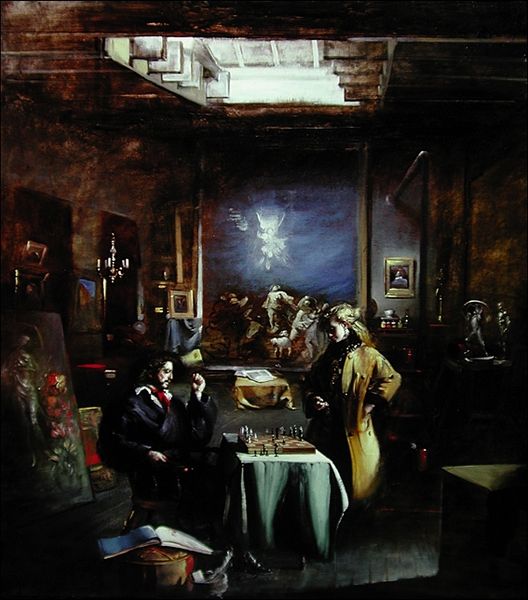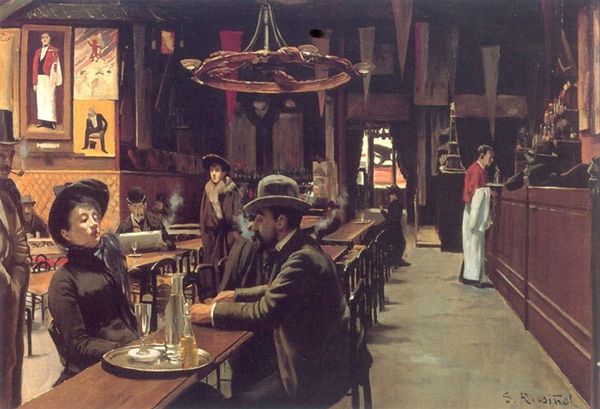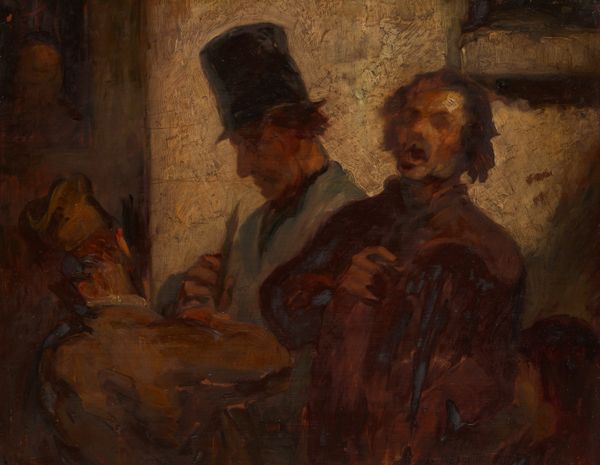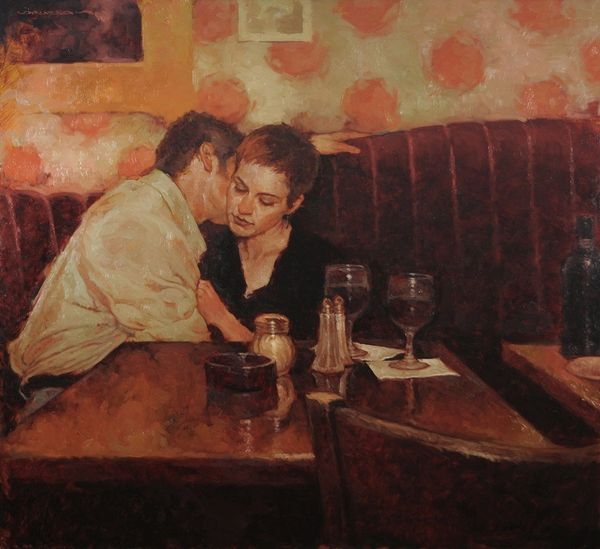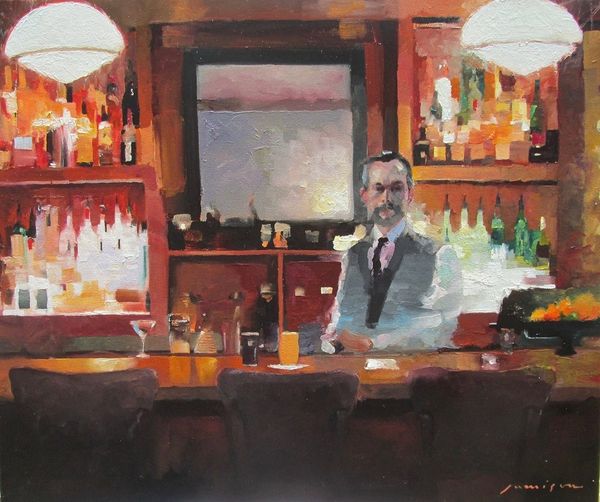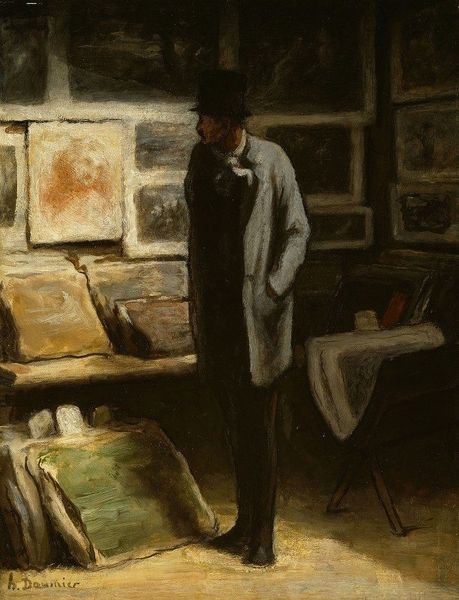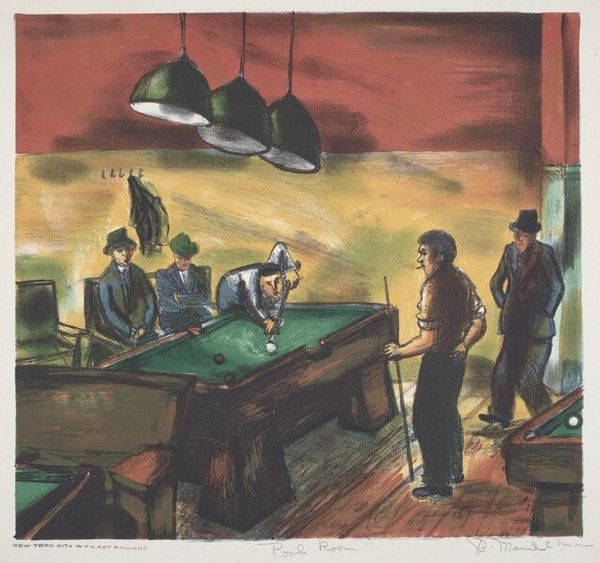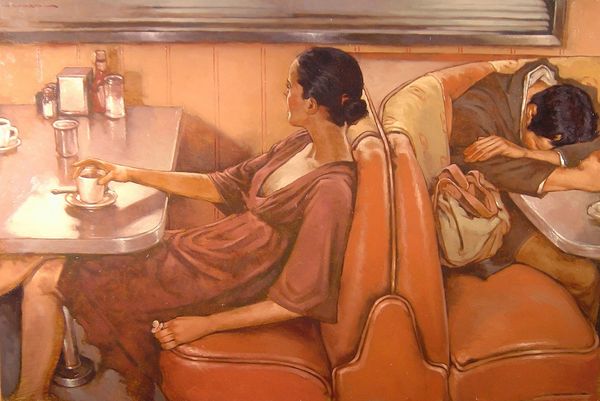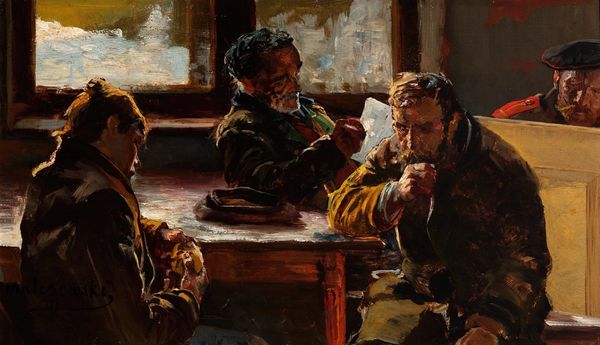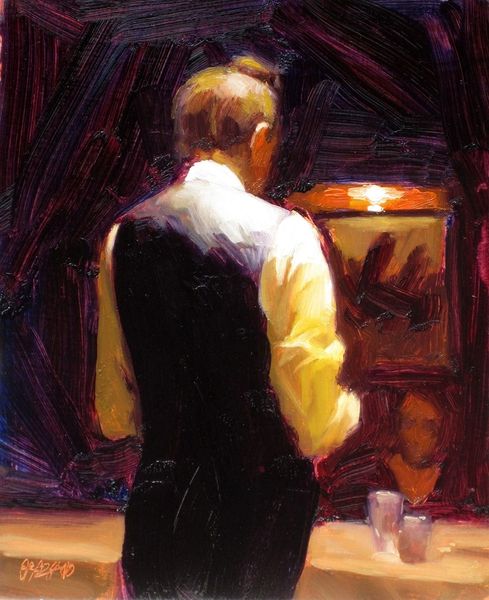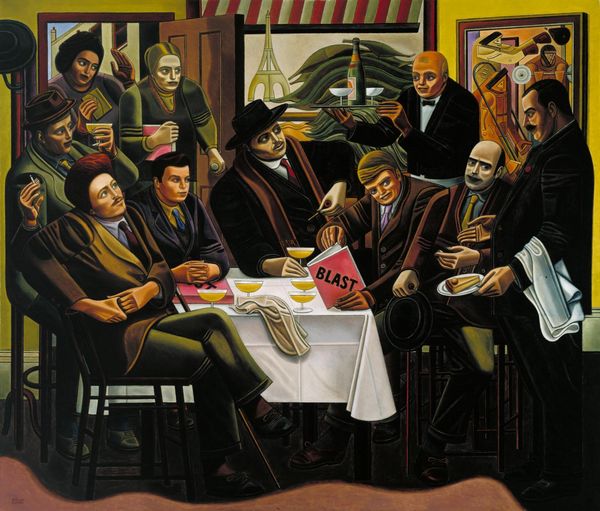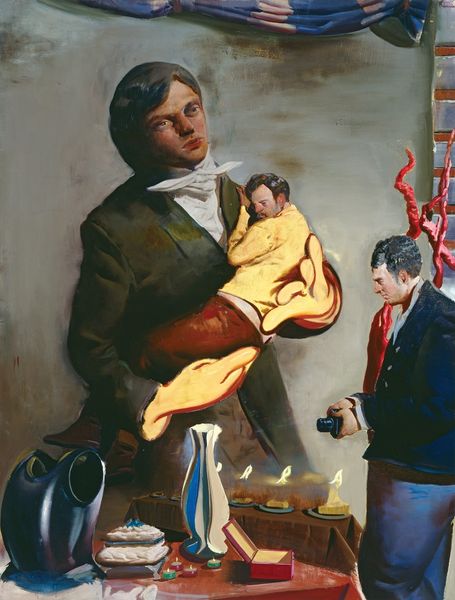
painting, oil-paint
#
portrait
#
painting
#
impressionism
#
oil-paint
#
oil painting
#
intimism
#
underpainting
#
cityscape
#
genre-painting
#
portrait art
#
realism
Dimensions: 61 x 74 cm
Copyright: Public domain
Editor: So, this is Eero Järnefelt's "French Wine Bar," painted in 1888. It strikes me as a very intimate scene, almost voyeuristic, catching a candid moment in this dimly lit bar. What do you make of this piece? Curator: Well, the late 19th century saw a real interest in representing everyday life, and this painting fits right into that trend. I’m particularly drawn to the setting—a seemingly unremarkable wine bar. How do spaces like this function socially and culturally? Think about the role of public spaces in shaping identity and community, especially in a rapidly changing urban environment. What’s your sense of the class dynamics being depicted? Editor: It does feel like a specific social world. The lone drinker, the bartender focused on his tasks... maybe it reflects the isolation one could feel even within a bustling city? Curator: Precisely! And how does the composition contribute to that feeling? Järnefelt’s use of light and shadow really emphasizes the separation between the figures, almost like staging a scene. What do you think he might be trying to say about Finnish society by setting it in a "French" wine bar? Consider that "Frenchness" was, and sometimes still is, linked to broader conversations of modernity and class aspirations. Editor: Interesting. Maybe he's commenting on Finland's relationship with broader European culture at the time – adopting, but also feeling distanced from it. I see your point about how spaces really shape not only social interactions but cultural identity itself. Thanks for pointing that out! Curator: Absolutely. Seeing how the public presentation of art can affect meaning makes understanding paintings like these richer for me.
Comments
No comments
Be the first to comment and join the conversation on the ultimate creative platform.
